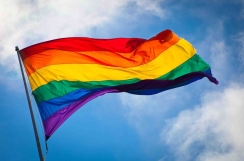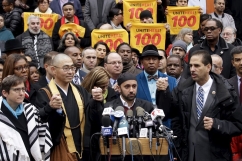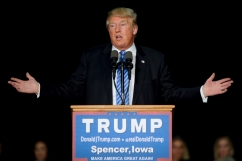Americans are divided over whether their next president should be careful not to criticise Islam or if he should speak bluntly about extremism, even if it means criticising the religion as a whole.

The new data was released on Wednesday by the Pew Research Centre, the same day Barack Obama visited a mosque for the first time in his eight-year tenure.
Half of Americans say the next president should "be careful not to criticise Islam as a whole when speaking about Islamic extremists". On the hand 40 per cent said the next president should "speak bluntly about Islamic extremists even if the statements are critical of Islam as a whole".
The split is along political lines with 70 per cent of Democrats and 80 per cent of 'liberal Democrats' saying the president should err towards caution. By contrast 65 per cent of Republicans and 70 per cent of 'conservative Republicans' would prefer the next president to be blunt.
A similar pattern emerges with divides along religious and race grounds. Most black Protestants (62 per cent) and those without a religious affiliation (65 per cent) says the president should be careful not to criticise Islam. However most white evangelicals (61 per cent) want the president to speak bluntly about Islamic extremism.
The research also shows a significant proportion of Americans think many of the US Muslim population is anti-American. Forty-nine per cent think "at least some" US Muslims are anti-American with 11 per cent thinking "almost all" are. About 14 per cent think "about half" are. Four in ten (42 per cent) thought "few" Muslim in the US are anti-American.
There is a similar split along political lines, with 54 per cent of Democrats thinking few Muslims in the US are anti-American whereas only 29 pe cent of Republicans thought the same.
However when it comes to violence in the name of religion, most Americans think the problem is to do with people rather than the religion itself. Two-thirds said the bigger problem is violent people using religion to justify their actions whereas only a fifth (22 per cent) said the problem lay in religious teaching.
But when those who said religion was the cause of violence were asked which religion they considered to be problematic, Islam was the most common answer.
The survey also found 60 per cent of Americans think there is a "lot" of discrimination against Muslims in the US and 76 per cent think that discrimination is on the rise.

















